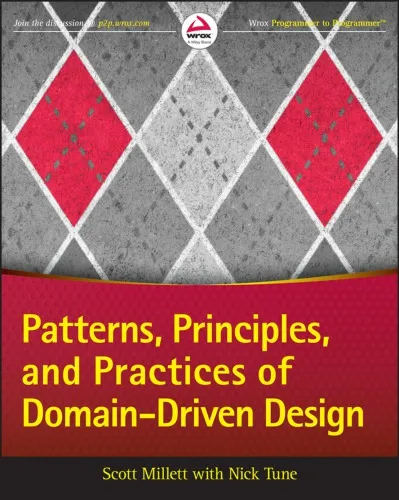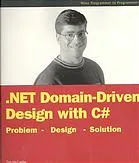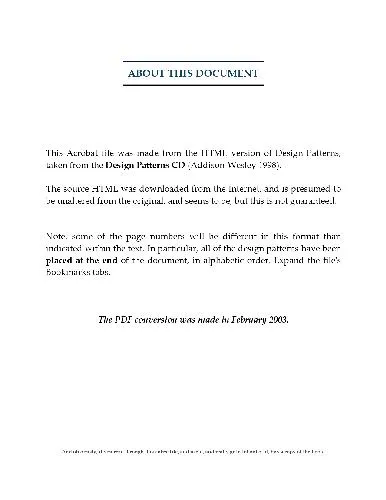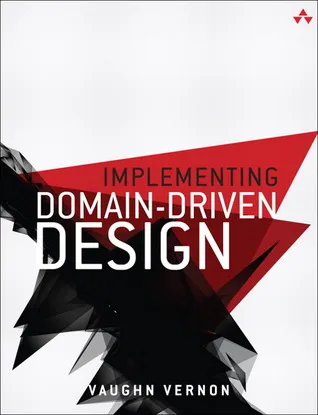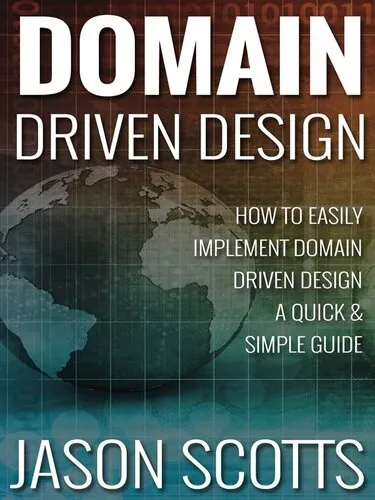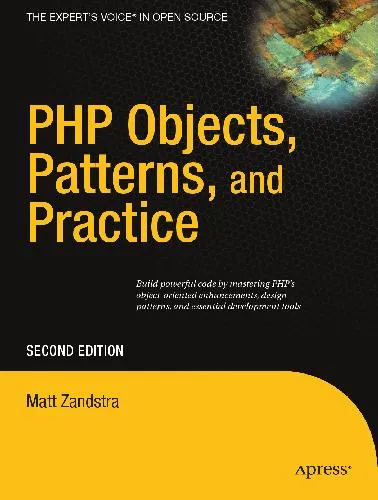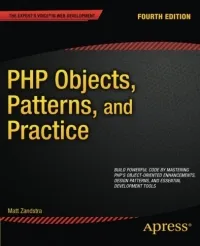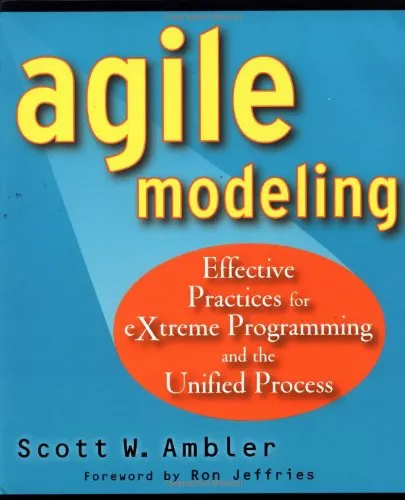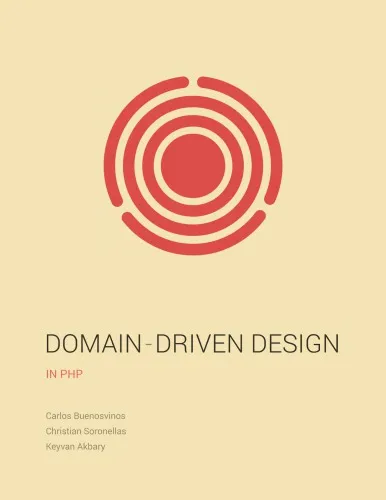Patterns, Principles and Practices of Domain-Driven Design
4.7
Reviews from our users

You Can Ask your questions from this book's AI after Login
Each download or ask from book AI costs 2 points. To earn more free points, please visit the Points Guide Page and complete some valuable actions.کتاب های مرتبط:
Persian Summary
Patterns Principles and Practices of Domain-Driven Design
A Comprehensive Guide to Domain-Driven Design
Detailed Summary of the Book
Patterns Principles and Practices of Domain-Driven Design is a comprehensive guide to Domain-Driven Design DDD a software development approach that focuses on understanding the core business domain and modeling it in code. Written by Scott Millett and Nick Tune the book provides a thorough introduction to the principles patterns and practices of DDD making it an essential resource for software developers architects and domain experts.
The book begins by introducing the fundamentals of DDD including the importance of understanding the business domain the role of the domain model and the concept of bounded contexts. It then delves into the principles of DDD such as the need for a shared language the importance of continuous learning and the role of feedback in the development process.
The authors also explore the various patterns and practices of DDD including entity value object and aggregate patterns as well as the use of repositories factories and domain events. They provide detailed examples and case studies to illustrate the application of these patterns and practices in real-world scenarios.
In addition to the technical aspects of DDD the book also covers the social and cultural aspects of software development including the importance of collaboration communication and continuous improvement. The authors emphasize the need for a shared understanding of the business domain and the importance of involving domain experts in the development process.
Key Takeaways
Some of the key takeaways from the book include
- Understanding the business domain is crucial to developing effective software solutions.
- A shared language and shared understanding of the business domain are essential for successful software development.
- Continuous learning and feedback are critical components of the DDD approach.
- Patterns and practices such as entity value object and aggregate patterns can help to simplify complex business domains.
- Collaboration and communication between developers domain experts and stakeholders are essential for successful software development.
Famous Quotes from the Book
Some notable quotes from the book include
"The domain model is not just a technical artifact but a shared understanding of the business domain that is used to guide the development of the software."
"The goal of DDD is not to create a perfect model of the business domain but to create a model that is good enough to support the development of effective software solutions."
"The use of patterns and practices such as entity value object and aggregate patterns can help to simplify complex business domains but they should not be used as a substitute for a deep understanding of the business domain."
Why This Book Matters
Patterns Principles and Practices of Domain-Driven Design is an essential resource for software developers architects and domain experts who want to improve their understanding of the business domain and develop more effective software solutions. The book provides a comprehensive introduction to the principles patterns and practices of DDD making it an ideal resource for those who are new to the subject.
The book also provides a wealth of practical advice and real-world examples making it a valuable resource for experienced developers who want to improve their skills and knowledge of DDD. The authors' emphasis on the social and cultural aspects of software development also makes the book a valuable resource for those who want to improve their collaboration and communication skills.
Overall Patterns Principles and Practices of Domain-Driven Design is a must-read for anyone who wants to develop a deeper understanding of the business domain and improve their software development skills.
Free Direct Download
You Can Download this book after Login
Accessing books through legal platforms and public libraries not only supports the rights of authors and publishers but also contributes to the sustainability of reading culture. Before downloading, please take a moment to consider these options.
Find this book on other platforms:
WorldCat helps you find books in libraries worldwide.
See ratings, reviews, and discussions on Goodreads.
Find and buy rare or used books on AbeBooks.
Questions about Book
2713
بازدید4.7
امتیاز0
نظر98%
رضایتReviews:
4.7
Based on 0 users review
Questions & Answers
Ask questions about this book or help others by answering
No questions yet. Be the first to ask!
